Inclusive research practice: engaging autistic individuals and their families in research within Autism CRC
There is evidence from other areas of practice such as cancer care that where consumers are involved in the design of research and data collection tools such as questionnaires – the tools are better received by the participants. There is also evidence that involving consumers is helpful in improving the dissemination of research findings within the community. This a relatively new endeavour within research with individuals on the autism spectrum, however we believe that this will also be true.
Within the Autism CRC involving end-users (namely individuals on the spectrum, their families and service providers) in identifying research questions and priorities places the needs of individuals on the spectrum at the centre of our research.
Involving individuals on the spectrum and their families in research:
- ensures that issues important to the autistic community are identified and prioritised
- supports the dissemination of research findings
- helps to translate research findings into real world practice where they are utilised
- ensures that resources focus on research that has benefit for and impact within the autistic community.
Helpful resources
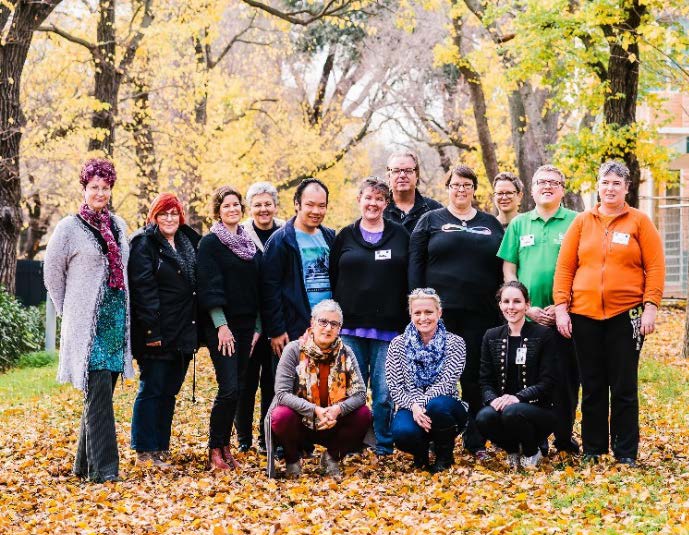
Guidelines for Creating Autistic Inclusive Environments
The guidelines and checklists in this document support the creation of inclusive environments at events, workshops and conferences.
Download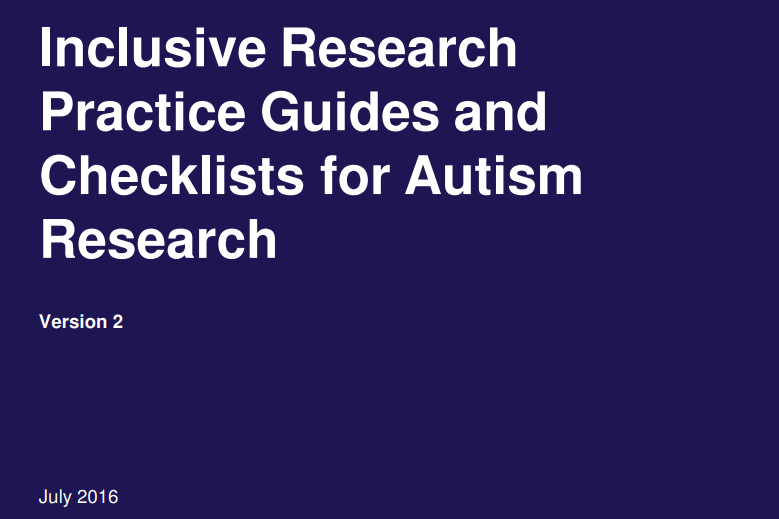
Inclusive research practice guides and checklists - final report
Autism CRC’s Inclusive Research Practice Guides and Checklists for Autism Research, published July 2016.
Download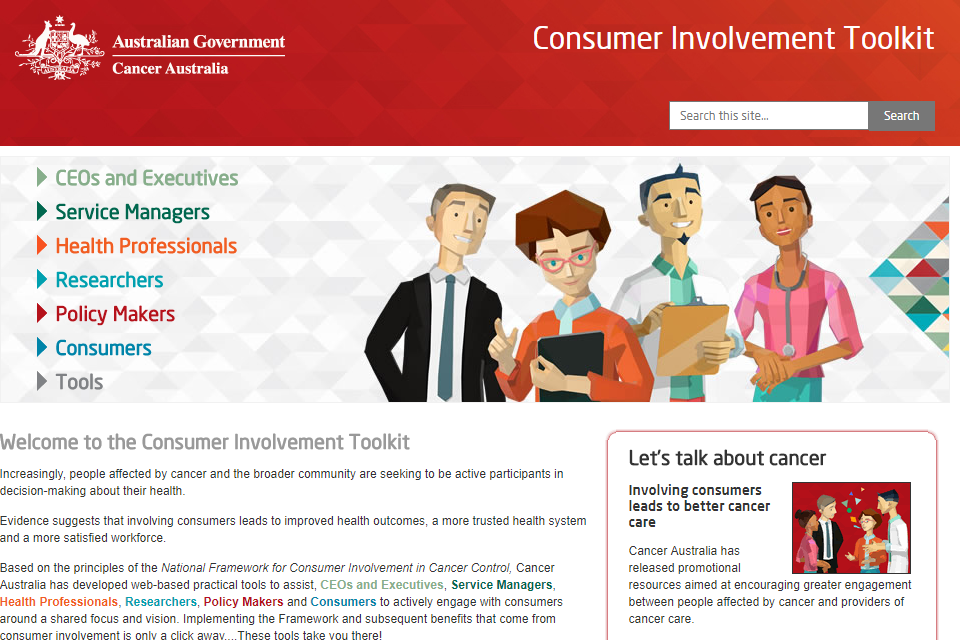
Consumer Involvement Toolkit
A framework developed by the Cancer Australia for consumer involvement to improve health outcomes, the health system and a more satisfied workforce.
Go to website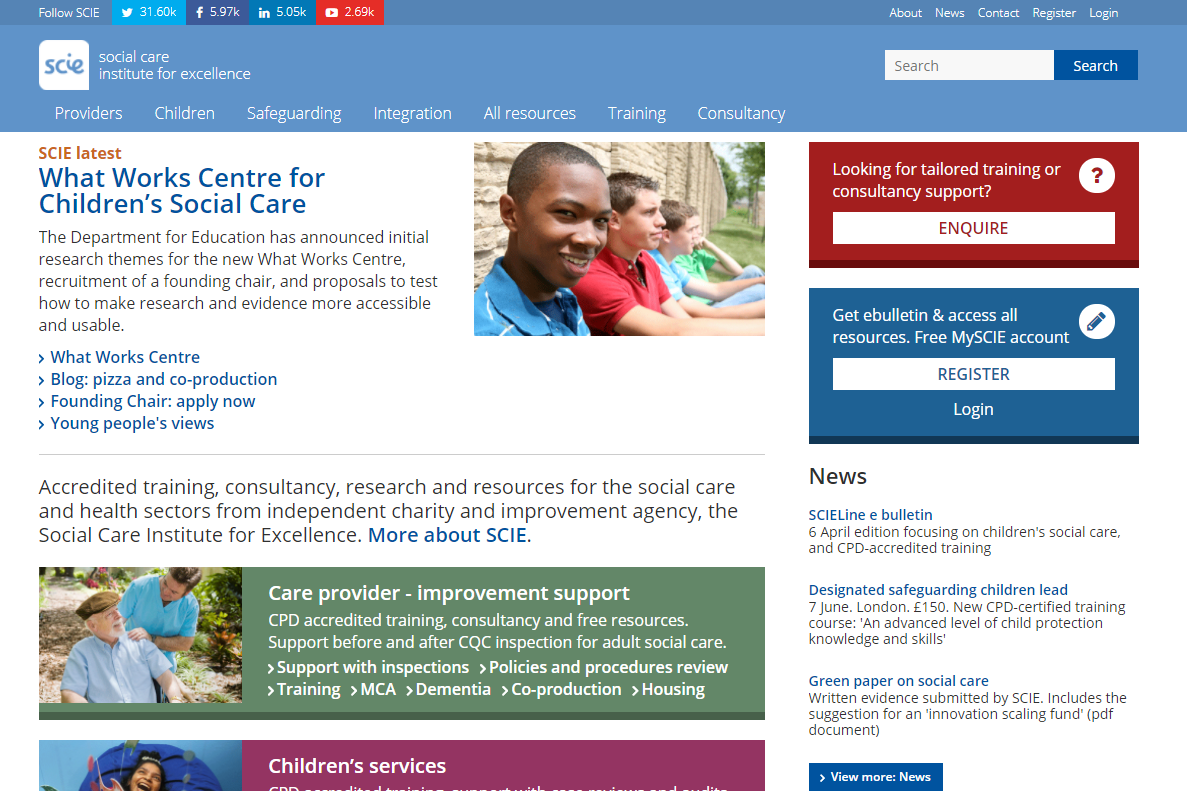
Social Care Institute for Excellence
The Social Care Institute for Excellence (SCIE) aims to improve the lives of adults, families and children who uses care services.
Go to website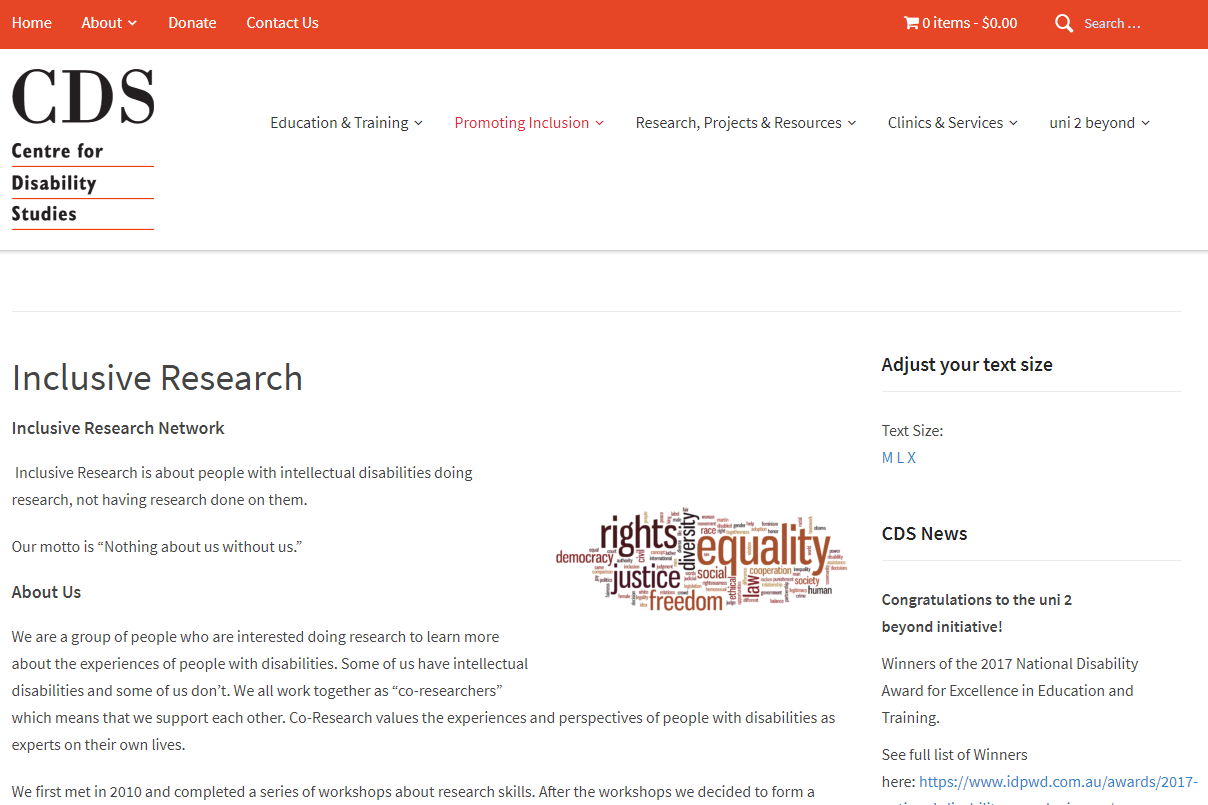
Centre for Disability Studies, University of Sydney
The Centre for Disability Studies have a mission to 'create and disseminate knowledge that improves the lives of people with disability'.
Go to websiteHelpful publications
- Jung, T., Harrow, J., & Pharoah, C. (2012). Co-producing research: Working together or falling apart? Centre for Charitable Giving and Philanthropy Briefing Note 8.
- Pellicano, L., Dinsmore, A., & Charman, T. (2013). A future made together: Shaping autism research in the UK. London: Institute of Education.
- Social Care Institute for Excellence (2013). Co-production in social care: What it is and how to do it. Adults’ Services: SCIE guide 51. London: Social Care Institute for Excellence.
Overview
How might individuals on the spectrum and their families be engaged?
There are many ways to engage individuals in research endeavours:
- commenting on research priorities
- participating in advisory groups to research projects
- reviewing draft questionnaires
- co-facilitating focus groups
- co-designing research methodologies
- participating in pilot stages
- co-presenting findings
- assisting with dissemination of research findings.
What is required?
A culture of inclusion
- Researchers embrace diversity, are accepting of difference and believe in and value the input of individuals on the spectrum and their families.
- Inclusive practices are embedded within the research organisation and its researchers.
Structures that support inclusive research practices
- Adequate resources are provided to cover the cost of involving end-users in research processes in project budgets.
- Inclusive practices are supported by a communication strategy
- Language used is accessible and understandable to everyone involved – namely avoid jargon. While it is often difficult to gain consensus on terminology, discuss with your end-users how they wish to be referred to. Consistent with discussions with end-users, we use the term ‘on the autism spectrum’ or ‘on the spectrum’.
Practices that support inclusive research
- autistic individuals are supported on research team and upskilled
- peer support workers/mentors are provided
- expectations and responsibilities are clear
- capacity within the research team is built with regard to inclusive practices
- policies for co-production in commissioning of research are developed
Review
- monitoring and assessment of outcomes and impacts is undertaken
- achievements are celebrated
- review findings are used to ensure continuous learning